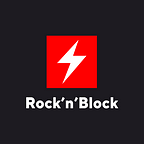The Ultimate Guide to NFT Staking Platforms
What is an NFT Staking Platform?
An NFT staking platform is a decentralized digital environment where users can lock up their NFTs for some time to receive rewards. Unlike traditional DeFi staking platform development where participants stake cryptocurrencies like Ethereum, NFT staking platforms require users to stake their unique digital assets. The rewards may include additional NFTs, cryptocurrency tokens, or other incentives governed by the platform’s rules. This distinction from traditional DeFi staking platforms provides a novel opportunity for users to engage with their NFT assets and earn rewards more uniquely and creatively.
Key Components of NFT Staking Platform Development
Let’s delve into the essential components of NFT staking platform development, shedding light on the intricacies that make these platforms function seamlessly and effectively.
Smart Contracts Development: Automates transactions and rewards on NFT staking platforms via self-executing contracts on the blockchain.
User Experience (UX) and User Interface (UI): Ensures easy interaction with clear interfaces for staking, monitoring rewards, and governance activities.
Security Measures: Implements multi-signature wallets, audit trails, and encryption to protect user assets and platform integrity.
Integration with NFT Marketplaces: Allows seamless staking of various NFTs from within the platform through APIs and smart contracts.
Tokenomics Model: Shapes the economic incentives and utility of the platform’s native token for sustainability and user value.
Reward Distribution Mechanisms: Determines fair incentive systems, like token rewards or governance tokens, to encourage user participation and platform growth.
How Does NFT Staking Platform Work?
Setting Up an NFT Staking Platform: Founders define staking parameters to incentivize user participation and ensure platform sustainability.
User Interaction: Users connect their NFT-compatible wallets, select NFTs to stake, and interact with the platform through an intuitive UX/UI. Integration with NFT marketplaces streamlines asset management.
Staking Process: Users approve transactions to lock their NFT assets in staking contracts, recorded in the platform’s ledger by smart contracts.
Reward Calculation: Smart contracts monitor staked NFTs and calculate rewards based on parameters like staking duration and NFT rarity, ensuring fair distribution and user engagement.
Reward Distribution: Periodic rewards are distributed transparently to stakers in various forms, fostering trust and confidence among users.
How are NFT Staking Rewards Calculated?
NFT staking rewards are determined by factors like staking duration, the quantity and rarity of staked NFTs, and platform activity. Longer staking periods and rare NFTs typically yield higher rewards, while platform activity influences reward rates to maintain fairness. Smart contracts handle reward calculation by tracking staked NFTs and other parameters. For founders, designing a transparent and equitable reward system is vital for platform sustainability, considering factors like long-term incentives and balanced distribution.
Benefits of NFT Staking Platform Development
Among the diverse applications of NFTs, an NFT staking platform development stands out as a particularly advantageous endeavor for platform founders. This section will explore the numerous benefits that NFT staking platform development offers to founders, empowering them to unlock new sources of value and drive growth in the digital asset ecosystem.
Revenue Generation: NFT staking platforms offer founders revenue streams from transaction fees, staking commissions, and token sales, ensuring profitability.
Expanding NFT Utility: By integrating staking, founders transform NFTs into dynamic revenue generators, attracting a broader user base.
Creating NFT Liquidity: Staking incentivizes active NFT trading, enhancing market liquidity and driving revenue through increased volume and transaction fees.
Community Engagement and Retention: Rewarding stakers and involving users in governance fosters community loyalty, driving platform adoption and retention.
Differentiating Through NFT Innovation: Founders can stand out by introducing unique staking mechanisms, reward structures, and marketplace integration, attracting users and driving adoption.
Ecosystem Growth and Partnerships: NFT staking platforms enable collaboration with creators, marketplaces, and ecosystem participants, unlocking new revenue streams and driving innovation.
Real-World NFT Staking Platforms Examples
NFTX
NFTX is a decentralized protocol designed to enable the fractional ownership and trading of NFTs. The platform allows users to stake their NFTs as collateral to mint ERC-20 tokens known as “NFTX tokens.” These tokens represent fractional ownership of the underlying NFTs and can be traded on decentralized exchanges (DEXs) or used as collateral for borrowing and lending. By staking their NFTs on the platform, users can earn rewards in the form of NFTX tokens, which accrue value based on the performance of the underlying NFT assets.
Axie Infinity
Axie Infinity is a blockchain-based game that allows players to collect, breed, and battle fantasy creatures called “Axies.” In addition to its GameFi features, Axie Infinity also offers an NFT staking mechanism known as “Axie Infinity Shards” (AXS). Players can stake their AXS tokens to participate in governance and earn rewards in the form of additional AXS tokens and non-fungible items. The staking rewards incentivize players to actively participate in the Axie Infinity ecosystem, contributing to its growth and sustainability.
Binance NFT
Binance NFT is a marketplace and platform developed by the leading cryptocurrency exchange Binance, dedicated to trading NFTs. In addition to its NFT marketplace features, Binance NFT also offers an NFT staking program known as “Binance Launchpool.” Users can stake Binance’s native coin (BNB) or other supported cryptocurrencies to earn exclusive NFT rewards. The staking rewards provide users with additional incentives to hold and stake their tokens, driving engagement and liquidity on the Binance NFT platform.
Why Choose Rock’n’Block for NFT Staking Platform Development?
In the fast-changing world of blockchain innovation, finding the right partner for your NFT staking platform development is key to making your project a success. At Rock’n’Block, we’ve been building cutting-edge solutions for over 15 years, and we’re proud of our track record. With solid experience in delivering top-notch blockchain projects, our team is all in to help you navigate every step of the development process, from concept to deployment and beyond.
